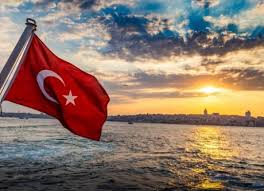Turkiye has introduced new visa rules aimed at attracting skilled foreign professionals, refugees, and other qualified workers to address labor shortages in key industries. These changes simplify work permit requirements, making it easier for foreign nationals to contribute to Turkiye’s economic and cultural development.
The Ministry of Labor and Social Security recently announced the reforms, which offer extended work permit exemptions and more flexible application processes. These updates reflect the government’s commitment to creating a welcoming environment for international talent while boosting its workforce in critical sectors like technology, sports, and media.
Key Features of the New Rules
1. Extended Exemptions for Skilled Professionals
Foreign professionals with specialized skills can now work in Turkiye without a permit for up to three years. This is a significant extension from the previous six-month limit. The aim is to attract workers whose expertise aligns with Turkiye’s economic and technological growth goals.
2. Refugee Inclusion in the Workforce
Refugees and individuals under temporary protection are now eligible for work without permits, provided they meet registration requirements. This policy helps integrate these groups into the labor market while addressing manpower shortages.
3. Support for Journalists and Athletes
Foreign journalists with press cards and sports professionals, such as athletes and coaches, no longer need work permits to continue their roles in Turkiye. The elimination of visa-specific restrictions for these professions simplifies their stay.
A Simplified Process for All
One of the most notable changes is the removal of the strict application deadline. Foreign workers can now apply for exemptions at any point during their stay, giving them more time and flexibility to explore employment opportunities.
These reforms position Turkiye as an attractive destination for career-driven individuals seeking stability and growth. For workers, the extended exemption periods and relaxed requirements mean fewer bureaucratic hurdles and greater job security.
For Turkiye, the influx of skilled labor is expected to drive economic progress, enhance cultural exchanges, and address gaps in industries that are vital to its development. By opening its doors wider, Turkiye is embracing a future shaped by global talent and innovation.


